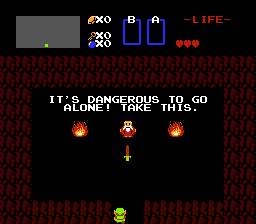Key parts of story telling are easy to define off the top of your head. You need a good plot arc that meets certain requirements. You need to ensure that your core cast of characters are varied and work well together. There’s a definite need for twists and turns to maintain a smooth pace. From there it’s mostly a matter of making sure that your story is readable and has a good flow.
But what about the interactions and dialogue? A lot of people tend to struggle with this aspect in their first few years and, even after quite a bit of experience, intermediate writers still encounter problems. The issue doesn’t present itself too much in the core characters, they’re typically the ones you’ve spent so long working on fleshing out that you know almost everything they should say or do. Plenty of people have tutorials out there telling you how to build characters like snowflakes or how to “interview” them to make them more real to you. So long as you follow that and you make sure your characters are well fleshed out, they’ll interact just fine. But that just handles your core, and frankly that’s not where the most egregious problems show up.
Where do those biggest problems appear then? When your protagonist encounters a nobody…
Unseen Stories

It’s not that everyone’s minor cast sucks, the greats tend to not have this weakness in their writing, but a lot of writers do. Don’t get me wrong, I’m not talking about the supporting characters who form around your protagonist. Most people look at those as just as important as their protagonist and put just as much loving detail into their every facet, even if they don’t have a great deal to do. But the greatest mistakes in dialogue and interaction often happen when a character appears just for a single scene or chapter. These characters, one and done, give a lot of early writers great problems and rarely get caught until they’re long in print or on screen. Take a look at any lower budget film or independent movie and consider who delivered some of the most cringe-worthy lines – it’s usually that guy who showed up once unless the lead is a shitty actor only employed due to nepotism, name recognition, or aesthetics.

And the same holds true for most prose, where the witness to a crime or a simple peasant can show up and seem sorely out of place among the rest of your characters. It’s not so much that these characters are universally a problem, they usually don’t have enough to do to drag the whole thing down, but if you’re going to make a mistake in your dialogue it’s more often than not going to happen in those moments. And the reason why is simple – those characters, having only been there for a page or a single scene, have literally no life beyond talking to the protagonist that one time. And, because of that, your protagonist has almost nothing to interact with.
Everyone else in your story, everyone with a backstory, is going to have motivations behind what they do and what they say. The dialogue of a novice writer may not be great at first because it takes time to make people sound natural. And, frankly, some writers never actually learn how to do it. But intermediate writers really suffer when they hit these moments because you’re in a situation where the natural dynamic between characters is imbalanced. On one side you have a character who is a living, breathing person in your mind, and on the other side you have someone who would be credited as “Random Villager”. This person doesn’t have a life or a personality, they just have a function.
So, what do you do? Write with a sense of Sonder.

Sonder, for those who aren’t familiar with the concept, is the idea that everyone you meet at any given time is living a life just as vivid and complex as your own. Every stranger you talk to, person you see on TV, or happen to just pass by on the street is having an entire life that you only see a single moment of. These people have their own motivations, and that leads to a lot of crazy realizations not only in your real life but the life of your fictional characters. For instance, while we often think the world is against us, really it tends to be that everyone else is just acting in their own favor. You, despite how important you are to your own life, are as unimportant to their life as they are to yours.
The same holds true for characters, even the minor characters you run into every day. Too often, people write these characters to simply move the plot forward or add a moment of additional flavor. They’re there just to serve the plot or your character’s interests. But in the process of doing that they often end up doing little more than coming off unnatural. Maybe you need that villager to tell your hero about the prophecy in their religion. But you have to stop and ask yourself for a moment why they would want to. As an intermediate writer, people usually gloss over that because, like in our day to day lives, we don’t consider the full scope of others’ lives until we step back to think about it.
The easiest to find examples for this sort of vacant function-driven character, because there are just so many of them, are non-player characters in classic videogames. Standing around and waiting for your protagonist to grace their life, as you finally encounter them and talk to them out of the blue, they tell you almost exactly what you need them to tell you. Without hesitation, pause, or any clear motivation, they will give you exactly what you need and little else.

And the videogame industry has spent years trying to resolve this because they know it’s unnatural and breaks immersion. So realize that these same things happen in a lot of prose and scripts. Your character arrives to their lives and they say what you need them to say, when you need them to say it, without much reason to. This comes off unnatural, sometimes even as blatant exposition.
At best, these characters feel awkward and unnecessary to what’s happening, despite their basic function. At worst, they may go into something I’ve long called the “exposition fairy”. The exposition fairy, a creature who wishes to tell you everything you need to know, is a helpful soul who wants to do their best for you for no reason other than that being their function. But they’re so out of place that it’s impossible not to notice. Eventually, they can even become annoying.

And while this often happens to those meaningless side characters, it also sometimes creeps into the supporting cast. Left unchecked, a supporting character can slip into doing this sort of thing out of either lazy or rushed writing. Before you know it, that character turns into an oddity all their own. Need an easy to see example? Ask yourself why Alfred in The Dark Knight Rises was so terrified of Bane after a single video and realize it was his function, rather than his motive – a marked difference from previous films in the franchise.

So, as with building your primary characters, I recommend that all character interactions, big and small, should include a “why”. Why is this person talking to your protagonist? Why would they want to? Why do they know this information? If you keep applying “why”, even without an extensive background in place, you should start to see that their responses start to become as natural as your other characters. Maybe they won’t have a detailed background you can recount to others years down the line, but they will have a momentary spark of motivation. They’ll have a reason to be there and be a part of that moment and as a result they’re going to feel like it.
Applying sonder, even for a moment, starts to flesh out not only the dialogue bot the rest of the world. The fact that your side character isn’t simply there in service to your character makes them feel more alive, because we never meet someone in our real lives that exists to serve our needs. Like in our world, the world of our characters should be full of people who are in it for themselves and are only interacting with the main cast for their own reasons. They’re not there to simply rattle off lines and push the plot forward. They have concerns, expectations, and interests that take priority in the way they think.
Maybe this means it’s not as direct or as informative as you originally intended. Maybe it means that the lines in question won’t serve your plot at all. But in the process of making them exist in their own worlds rather than the world of the protagonist you’ll create a better sense that they’re people too. Even games, which I noted used to be horrible at this, started to learn that the world fleshes out better once the NPCs occasionally stopped revolving around the player. In fact, in many modern games some of the most entertaining moments…
Don’t really require you at all.
(I write novels, scripts, and these blogs. Very few people interact with me directly, so I invite you to show me your sonder on twitter.)







